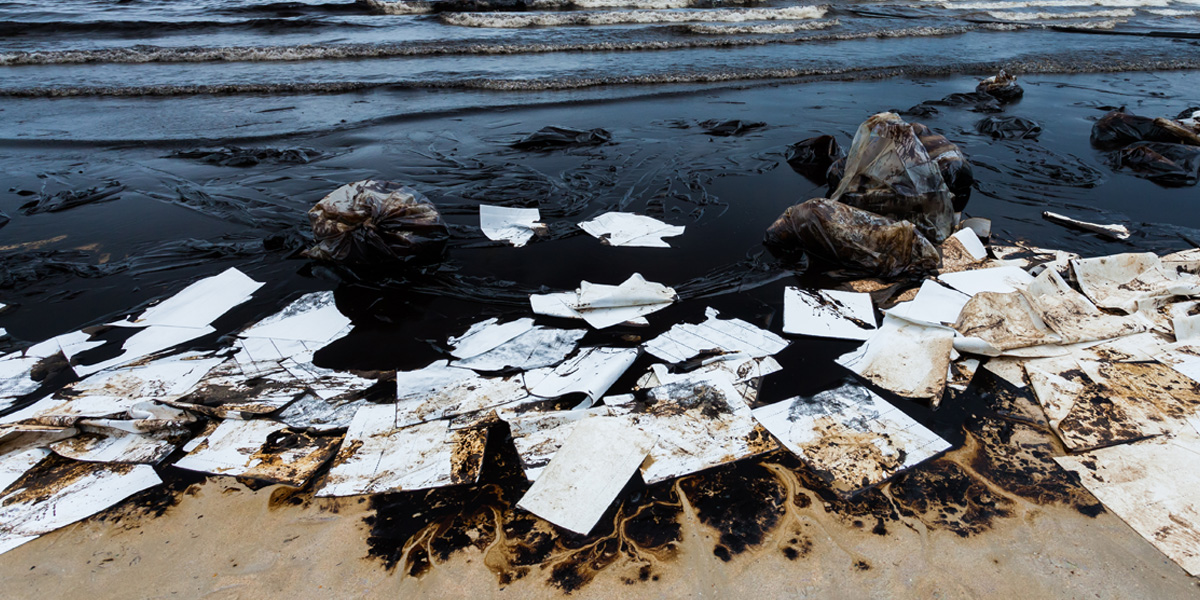Oil Spill Clean Up
Oil Spill Clean Up
A constant question we receive is “How should we clean up an Oil Spill?” There is no simple answer.
Oil spill clean ups are all about efficiency and effectiveness. The quicker a response to a leak or spill the greater chance the cleanup crew has at limiting lasting exposure to the environment or facility. However, making sure the spill cleanup crew is outfitted with the proper defense to fight a spill is just as important. Highlighted below are a few examples of our popular spills our customers deal with.
How To Clean Up Spills on Oceans, Lakes, Rivers or Streams
Boat centers need to be proactive before the warmer months come when owners begin to fuel up their boats for the season. Large lakes and streams are especially important because they often feed into the local drinking water. Small spills and gas drips into the water should be captured by oil booms which can connect on either end to enclose a spill area. Absorbent pads ( A100WSMH) can float atop of the enclosed area soaking up the spilled oil and clean up the oil sheen.
Boat gas tanks can range in size, but they all have one thing in common they are large. With most fast motorboats running through 20-30 gallons of fuel an hour, their tanks can hold up to 300 gallons of fuel. With that being said, it is vital to have a large spill kits close by to any fueling station. Our 95 Gallon spill kit is the perfect for this application. Coming packaged with in a large yellow bin with a plastic screw top, this kit stands up to the elements. The kit contains all of the essentials including oil only pads, socks and pillows.
Finally, the bilge of a boat pumps the water back out to sea. You never want to have oil or gasoline floating in the bilge without some sort of way to collect it so it doesn’t get pumped out of the boat. Bilge Booms are a must in your bilge. They have a rope tied on one end so they stay in place and float around, collecting and oil or gasoline that has been collected on top of the water.
How To Clean Up Spills on Interstates and Major Highways
The United States roughly transports 380 billion gallons of gasoline, diesel, and aviation fuel across its interstates and highways every year. With tractor-trailers being the most versatile way of transportation for short distances, they are most often used. An average tractor-trailer can haul 12,000 gallons of gasoline. Unfortunately these large trucks can roll over when rounding tight curves spilling the majority of their load. When this happens, it is essential for spill response teams to limit the amount of spillage that seeps into the nearby drains and flowing through to water treatment centers.
The best way to protect drains is by creating barriers around the border with oil only absorbent socks. Containing the larger main portion of the spill with booms can help create a perimeter so that heavyweight absorbent pads can soak up the mass of the spill that is being contained. Additionally, every truck should have a trucker kit on hand, which is small enough to fit in the cab of a truck put will clean up to 8.7 gallons of spilled oil, gasoline or diesel fuel.
How To Clean Up Spills inside Your Facility
A spill response plan helps to minimize potential danger to employees, the environment and your facility. First thing a company must identify is what type of material is being housed on site that may leak or spill. A chemical company, must understand that housing hazmat spill kits are a must. These absorbent’s are designed and manufactured to take on the aggressive chemicals and solvents.
If you have bulk petroleum or operate a liquid petroleum terminal, having 95 gallon spill kits located throughout the grounds is necessary. Depending on the size of the terminal, having multiple spill kits on hand will ensure effective and efficient cleanup. Spill kits should only be used for on spills, so having packs of absorbent pads on hand for everyday drips is also important.
If you are looking for something specific or have questions about your facility, we are always available by phone and can help answer any questions you may have. Call us at 215-289-6507 or via email at info@ypers.com.

